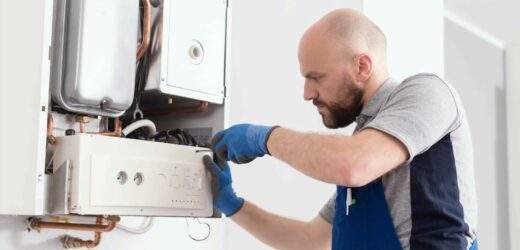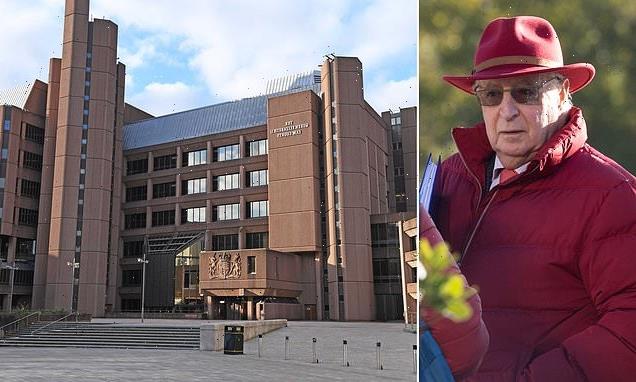HOUSEHOLDS should never ignore unusual noises coming from their boiler and radiators.
From bubbling to popping and hissing here's why you shouldn't ignore the sounds coming from your central heating system.
Any unusual noise we notice coming from our central heating system is always a cause for concern and should never be ignored, especially now we're starting to switch the heating on.
The Sun spoke to trade expert Mark from Cheshire, who partnered with Toolstation to educate people on the sounds coming from their boilers and radiators.
Most noises can be fixed for free or with a little cost by the homeowner.
But some noises cost up to £300 to fix – a bill less than ideal while households continue to suffer as a result of the cost of living crisis.
READ MORE IN MONEY
Energy direct debit warning over bill hikes by suppliers – your rights explained
Save £310 a year on your energy bills as thousands of homes set to get new grant
We reveal the major causes of unusual boiler and radiator sounds and how to rectify them.
Bubbling or popping from the boiler – costs £75-£300 to repair
A bubbling or popping sound could either be a sign of low water pressure or, more seriously, kettling.
The water pressure on your boiler should be set between one and two on the gauge.
Anything below that is low pressure and could mean that the boiler struggles to fire up.
Most read in Money
Drivers amazed by hack that removes paint scratches from your car in secs
Warning to hundreds of thousands of families over child benefit bills
Millions of grandparents to get state pension bonus from next Monday
I was living off food stamps – now I make £100k a month with my side hustle
To increase your boiler pressure first turn off your boiler.
Look for an external filling loop directly under the boiler – this is usually a short length of braided hose linking two water pipes, with levers at both ends to work valves.
Consult the boiler’s instruction manual if you can’t find it.
Turn both valves so that the levers are aligned with the direction of the braided hose. You should hear water running, and see the boiler pressure gauge going up.
At about 1.5 bar, shut off both valves.
Provided the pressure stays up, and there are no obvious signs of leaking water, it’s safe to power the boiler back up – if your boiler continues to lose pressure consult a heating engineer.
If this still doesn't resolve the noise your boiler might be experiencing kettling.
This is when the heat exchanged overheats and produces steam bubbles.
When the bubbles move to a colder area, they make this bubbling sound.
If it is the latter, this would require calling in a heating professional.
Repairing boiler kettling can cost between £75-£300, according to Mark.
Mark said: "If you do hear a peculiar sound coming from your boiler, it’s always good to call a professional either way just to double-check. Low pressure in your boiler usually just requires topping up."
Hissing from the radiator – costs £1-£3 to fix
A hissing radiator means there is water or air moving through the heating system.
Sometimes, too much air can get trapped in a radiator and stop it from heating up in parts, or even altogether.
Bleeding the radiator is the best way to fix this issue, and this can be done at home with a radiator key – which usually cost between £1-£3.
But if the hissing is accompanied by banging and thumping or other louder noises, then a heating engineer will be needed to investigate further.
Mark said: "Leaving your radiator to hiss and not bleeding it can lead to other problems that are worse than your original one.
"Firstly, trapped air means your heating will reduce despite you having it on, wasting your money.
"Leaving it for long enough will cause knock-on problems to the whole of your system and you’ll eventually have to call in a plumber. This will substantially increase the cost to fix."
Households wishing to bleed their radiators should first turn the heating off and allow it to cool down.
This is to make sure that the hot water in the radiators doesn’t burn you when you start to bleed the radiators.
You will usually be able to find the bleed valve at the top and side of your radiator.
The bleed valve is the small metal square or screw found inside the surrounding nut.
Be sure to place a container or towel on the floor beneath the bleed valve so it protects your flooring from any discoloured water.
Use your radiator key to turn the valve at the top of the radiator.
Turn in an anticlockwise direction until you hear a hissing sound.
Make sure to not open the valve fully to avoid water escaping too quickly.
Once the hissing noise and air stop – and water starts to leak out – you will have bled all the trapped air from the radiator.
Read More on The Sun
Matt Hancock can’t keep his hands off girlfriend at I’m A Celeb final
I’m A Celeb fans stunned as 2021 winner Danny Miller ‘snubs’ final
Read More on The Sun
Four health conditions that could be linked to not washing your bed sheets enough
Foodie shares crispy roast potato recipe – they’re the best you’ll ever eat
Turn the key clockwise to close the valve.
After bleeding your radiators you may need to top up your boiler's water pressure.
Source: Read Full Article













